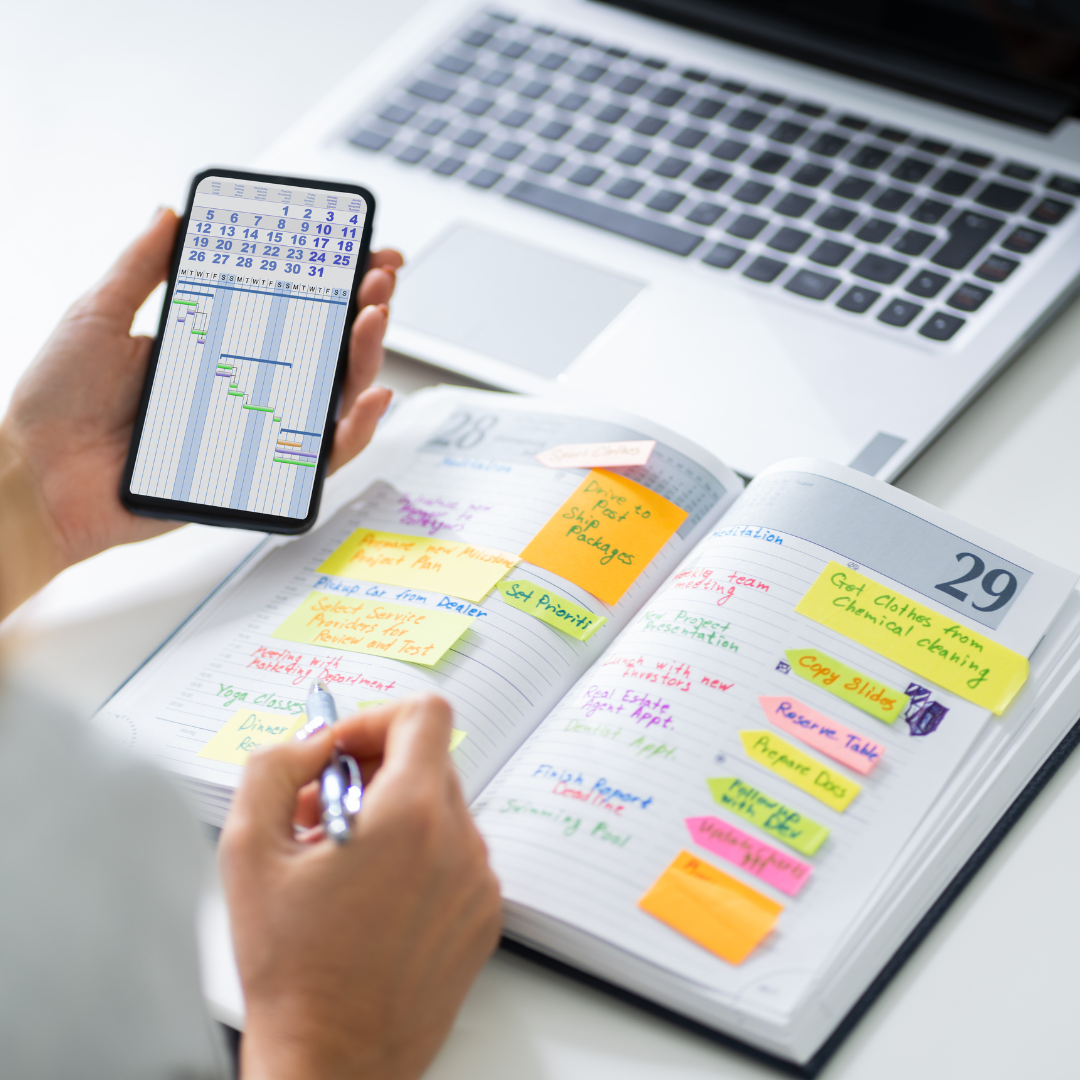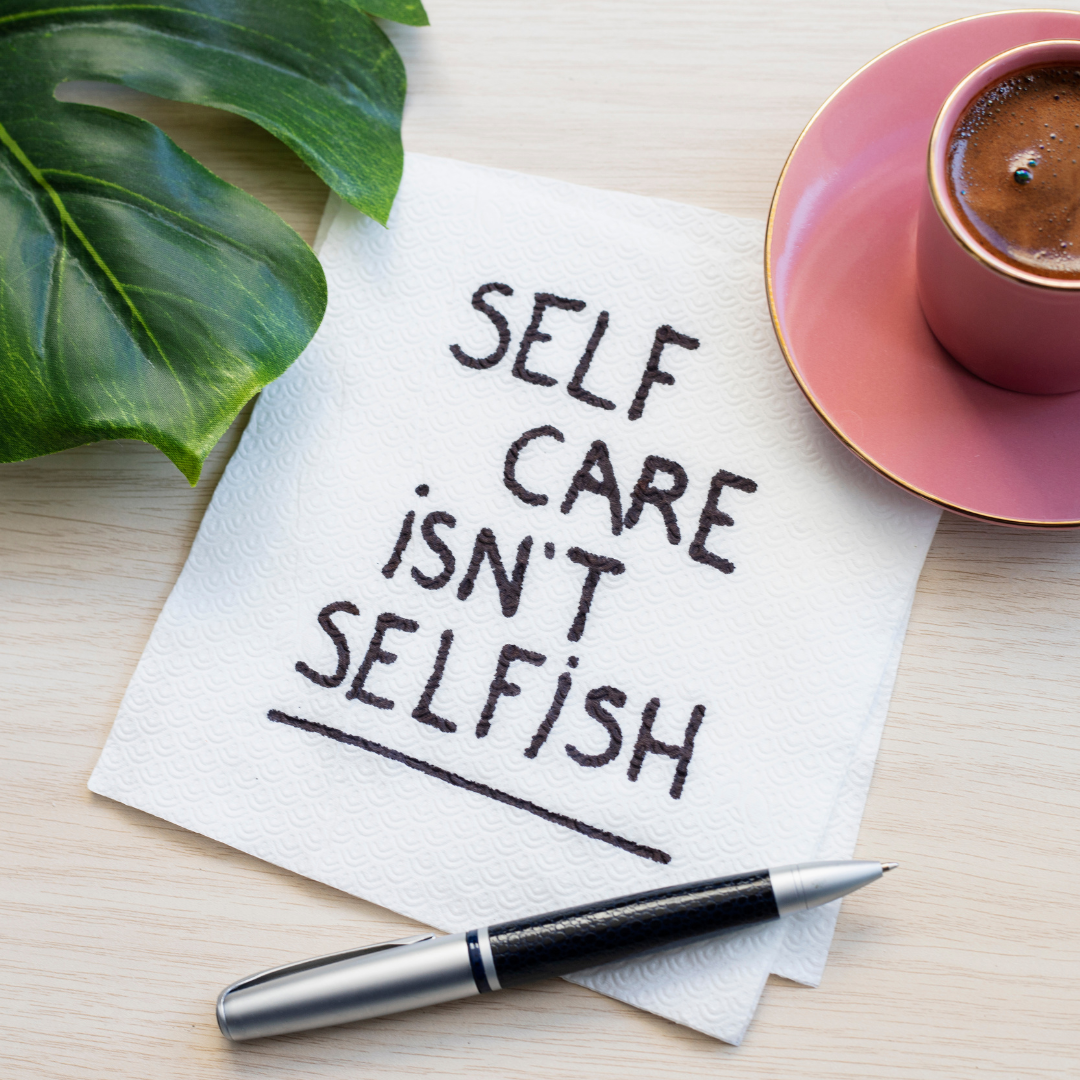Best Tips To Reduce Study Stress
Best Tips To Reduce Study Stress
As students, it's common to experience stress and anxiety during periods of intense studying or exam preparation.
While some stress levels can motivate, too much stress can be overwhelming and negatively affect our health and academic performance.
The good news is that you can use many tips and strategies to reduce study stress and improve your overall well-being.
This blog post will explore effective ways to manage stress and stay focused during your studies.
From time management techniques to self-care practices, these tips will help you stay calm, focused, and on track toward your academic goals.

1. Eat A Balanced Diet
Eating a balanced diet can help you feel more energized and better handle stress during intense studying.
A healthy, balanced diet includes a variety of foods that provide essential nutrients such as vitamins, minerals, and macronutrients.
These nutrients are necessary for optimal physical and mental health and can help improve your ability to focus, retain information, and manage stress levels.
One way that a balanced diet can help reduce stress levels is by regulating blood sugar levels.
When we eat a diet high in sugar and refined carbohydrates, our blood sugar levels can spike and then crash, leading to feelings of fatigue and mood swings.
On the other hand, eating a balanced diet that includes complex carbohydrates, lean proteins, and healthy fats can help keep our blood sugar levels stable, providing sustained energy throughout the day and preventing crashes in energy levels that can contribute to stress and anxiety.
Moreover, eating a balanced diet that includes plenty of fruits, vegetables, whole grains, and healthy fats can also improve our mood and reduce symptoms of anxiety and depression.
Studies have shown a connection between the foods we eat and our mood and that consuming a diet high in processed foods, sugar, and unhealthy fats can worsen symptoms of stress and anxiety.

2. Exercise Regularly
Exercise is a great way to reduce stress and improve overall well-being. When we exercise, our bodies release endorphins, which are natural chemicals that help us feel good and reduce feelings of stress and anxiety.
Exercise also helps to increase blood flow and oxygen to the brain, which can help improve mood and cognitive function.
According to some research, exercise can alleviate mild to moderate depression and anxiety, as well as some prescription drugs. Exercise can also improve sleep quality, reduce muscle tension and pain, and help to strengthen the immune system.
Many different types of exercise can be beneficial for reducing stress levels, including aerobic activities such as running, cycling, or swimming, as well as strength training, yoga, or Pilates. The key is to find an exercise you enjoy that fits your schedule.
It's important to note that exercise should be approached balanced. Over-exercising or pushing your body too hard can increase stress and lead to injury or burnout.
It's important to listen to your body and take breaks when needed. Incorporating regular exercise into your routine can greatly reduce stress levels and improve overall health and well-being.

3. Involve Extracurricular Activities
Extracurricular activities can provide a range of benefits for students beyond academic studies. These activities include sports teams, clubs, volunteer work, music ensembles, and more.
Participating in extracurricular activities can help students relax and reduce stress levels. Engaging in something enjoyable and fun can be an effective way to relieve pressure and refresh the mind.
Extracurricular activities provide opportunities for students to develop various skills, including leadership, teamwork, time management, and communication. These skills can be valuable both in academic settings and in future careers.

4. Get Enough Sleep
When you sleep, your brain processes and consolidates the information you learned during the day, which helps you retain and recall it better.
Sleep deprivation can lead to poor concentration, lack of focus, and impaired decision-making abilities. Adequate sleep helps you stay alert and focused throughout the day.
Lack of sleep can increase stress levels, while adequate sleep helps reduce stress hormones, making you feel more relaxed and refreshed.
Poor sleep habits are associated with an increased risk of obesity, diabetes, heart disease, and other health conditions.
It's easy to fall asleep while studying or working. You're not alone. According to a study by the American Psychological Association, more than 40 percent of college students experience this problem. If you want to reduce stress while studying, try getting a good night's sleep.
The APA recommends at least seven hours of uninterrupted sleep is the minimum time you should get each night (11:00 p.m.-6:00 a.m.).
This is because sleeping helps us feel relaxed and refreshed before we go to school or work the next day.
It's especially important in classrooms where it may be difficult to focus on learning because students are in too much of a rush after classes end and need to get back home as quickly as possible to study for the test in the morning.

5. Set A Study Schedule
Your mind doesn't stop working once you shut it off. Your brain constantly thinks about what to do next, and you need a schedule to keep your study time consistent.
Set a plan that works for you. You want to avoid being stuck in the same routine all the time. Do you have a certain time of day that's too early or too late?
This can prevent you from studying when you're tired and sleepy or provide more opportunities for procrastination.
If there are nights when homework is due, turn those into days when you can study even if your schoolwork isn't expected.
When starting a new degree program, thinking about everything you need to do can be overwhelming.
Your schedule will look like this: You will go through the same process each semester to take tests, write reports and complete assignments.
You'll have plenty of free time after school ends. So, how do you stay on track? One way is to set a study schedule designed to manage your time.
This will help keep you focused and organized, even when your workload demands are high. How do you do that?
Start by setting a goal for yourself every week or month. Doing so will help you determine what steps to take to meet that goal and ensure you stay caught up in all areas.
It might sound counterintuitive, but focusing on being productive — rather than just doing well — will help keep your grades up without stressing out about them all the time.

6. Ask For Help
One of the best ways to combat stress and anxiety is by asking for help. You can get support from a trusted peer or professional.
If you don't trust someone, you could always ask your teacher or professor to explain how he did his work.
Sometimes, it's hard to find someone who understands your situation. But if you dare to reach out, someone will likely listen. Just remember: there's no shame in getting help if you need it.

7. Set Realistic Goals
Setting realistic, achievable goals within a specific timeframe is important when studying. This can help you feel more motivated and accomplished as you progress toward your goals.
Start by breaking down your workload into smaller, more manageable tasks. This can help you stay organized and on track and prevent you from feeling overwhelmed.
For example, if you have a large research paper due in two weeks, break it down into smaller tasks such as conducting research, creating an outline, writing the introduction, etc.
Once you've broken down your workload, set specific and measurable goals for each task. This can help you stay focused and motivated, as you can see your progress as you complete each task.
For example, set a goal to complete the research for your paper within three days or to write 500 words per day until you finish your first draft.
It's also important to be realistic when setting your goals. Don't take on too much at once, as this can lead to burnout and stress.
Instead, set achievable goals you can accomplish within the given timeframe. This can help you build momentum and stay motivated as you work towards your goals.

8. Prioritize Self-Care
When studying, it's easy to get caught up in the workload and forget to care for yourself.
However, taking care of yourself outside of studying is as important as hitting the books. Engaging in enjoyable activities can help reduce stress and improve your overall well-being.
One of the best ways to prioritize self-care is to set aside time each day for activities you enjoy.
This can be as simple as taking a few minutes to read a book or watch a funny YouTube video. Or, it can be a more involved activity like going for a hike or taking a yoga class.
In addition, it's important to take care of your physical health by getting enough sleep, eating a healthy diet, and staying active. When you prioritize your physical health, you'll have more energy and focus on studying.
Lastly, remember to spend time with loved ones. Social support can be a powerful tool for reducing stress and improving mental health. Make time to hang out with friends, call your family, or join a social club at school.

9. Limit Distractions
Distractions can be a major source of stress when studying. It can be difficult to stay focused when your phone keeps buzzing with notifications or when you keep getting pulled into social media. One of the best ways to combat these distractions is to limit them as much as possible.
One effective strategy is to turn off your phone or put it on silent mode. This way, you won't be constantly interrupted by calls, texts, or notifications.
If you need your phone for studying purposes, such as to access online resources, consider downloading an app that allows you to block certain apps or features during designated study times.
Another strategy is to log out of social media or other distracting websites. This can help prevent you from mindlessly scrolling through your feed instead of studying.
If you find it difficult to resist the temptation to check social media, consider using a website-blocking app or extension that prevents you from accessing these sites during your designated study time.

10. Practice Positive Self-Talk
Positive self-talk can be a powerful tool for reducing stress and building confidence. It involves replacing negative thoughts with positive, encouraging ones.
When it comes to studying, it can be easy to get caught up in negative self-talk, such as telling yourself that you're not smart enough or that you'll never be able to pass the exam.
To practice positive self-talk, start by identifying negative thoughts that you have about yourself and your abilities. Then, challenge these thoughts by asking yourself if they're true.
For example, if you think, “I'm never going to be able to understand this material,” challenge that thought by reminding yourself of times when you've succeeded or by focusing on specific steps to improve your understanding.
Next, replace these negative thoughts with positive affirmations and self-talk. For example, you might tell yourself, “I am capable of learning this material,” or “I have the skills and knowledge to succeed.”
You can build confidence and reduce stress by focusing on positive, encouraging thoughts.
It's important to note that positive self-talk isn't about denying reality or ignoring areas where you need to improve.
Instead, it's about focusing on your strengths and capabilities and approaching challenges with a growth mindset.

11. Stay Organized
Staying organized reduces study stress and improves productivity. When you're disorganized, you easily feel overwhelmed and anxious about all the tasks you must complete.
By keeping your study materials, notes, and assignments organized, you can feel more in control of your workload and reduce your stress levels.
Use a planner or calendar to keep track of important dates, such as assignment deadlines and exam dates.
Create a study schedule that outlines when and where you will study each day. Having a set routine can help you stay on track and avoid procrastination.
Keep your study materials and notes organized by subject or topic. Use folders, binders, or digital tools to help you stay organized.
Take regular breaks to review and organize your notes. This can help you retain information and avoid feeling overwhelmed.
Prioritize your tasks based on their importance and deadline. This can help you stay focused and avoid feeling like you're not making progress.

12. Practice Relaxation Techniques
Practicing relaxation techniques such as breathing exercises, meditation, and yoga can be highly effective ways to reduce study stress and improve focus.
These techniques are widely used to promote relaxation, reduce stress, and improve overall well-being.
Breathing exercises are simple techniques that involve taking slow, deep breaths to activate the body's relaxation response. This can help to lower stress hormone levels, reduce anxiety and improve focus.
One example of a breathing exercise is the 4-7-8 technique, where you breathe in for four seconds, hold for seven seconds, and breathe out for eight seconds. By repeating this technique several times, you can feel a sense of calm and relaxation.
Meditation involves focusing the mind on a particular object, thought, or activity to achieve a state of mental clarity and calm.
This practice has been shown to reduce symptoms of stress, anxiety, and depression and improve cognitive function.
There are different types of meditation, such as guided meditation, mindfulness meditation, and loving-kindness meditation, that you can try to find the one that works best for you.
Yoga is a practice that combines physical postures, breathing techniques, and meditation to promote relaxation, reduce stress, and improve physical health.
The physical postures of yoga can help release tension in the body and improve flexibility, while the breathing and meditation components can help calm the mind and reduce stress levels.
Incorporating a regular yoga practice into your routine can help you feel more centred, calm, and focused during intense studying.

Conclusion
Managing study stress is essential for maintaining good mental and physical health and achieving academic success.
By implementing the tips and strategies discussed in this blog post, you can reduce stress levels and improve your ability to focus and retain information during your studies.
From taking breaks and practicing relaxation techniques to eating a balanced diet and getting enough sleep, there are many simple yet effective ways to manage study stress.
Remember to prioritize your well-being and seek support from friends, family, or mental health professionals if you struggle with excessive stress or anxiety.
By taking care of yourself, you can thrive academically and personally and achieve your full potential as a student and person.
I trust you enjoyed this article about the Best Tips To Reduce Study Stress. Please stay tuned for more blog posts to come shortly.
JeannetteZ
>>>Please click here to read my all-inclusive article about Lessons That Will Teach You All About Stress<<<
>>>Are you interested in Natural Healing And Stress Relief through Herbs? Please click here for my #1 Recommendation<<<
Your Opinion Is Important To Me
Thoughts? Ideas? Questions? I would love to hear from you. Please leave me your questions, experiences, and remarks about this article on the Best Tips To Reduce Study Stress in the comments section below. You can also reach me by email at Jeannette@Close-To-Nature.org.
Disclosure
This post may contain affiliate links. I earn from qualifying purchases as an Amazon Associate and other affiliate programs. Please read my full affiliate disclosure.
You might also enjoy these blog posts:
6 Best Tips To Reduce Stress In Men Over 50
Best Acupressure Points To Relieve Stress








